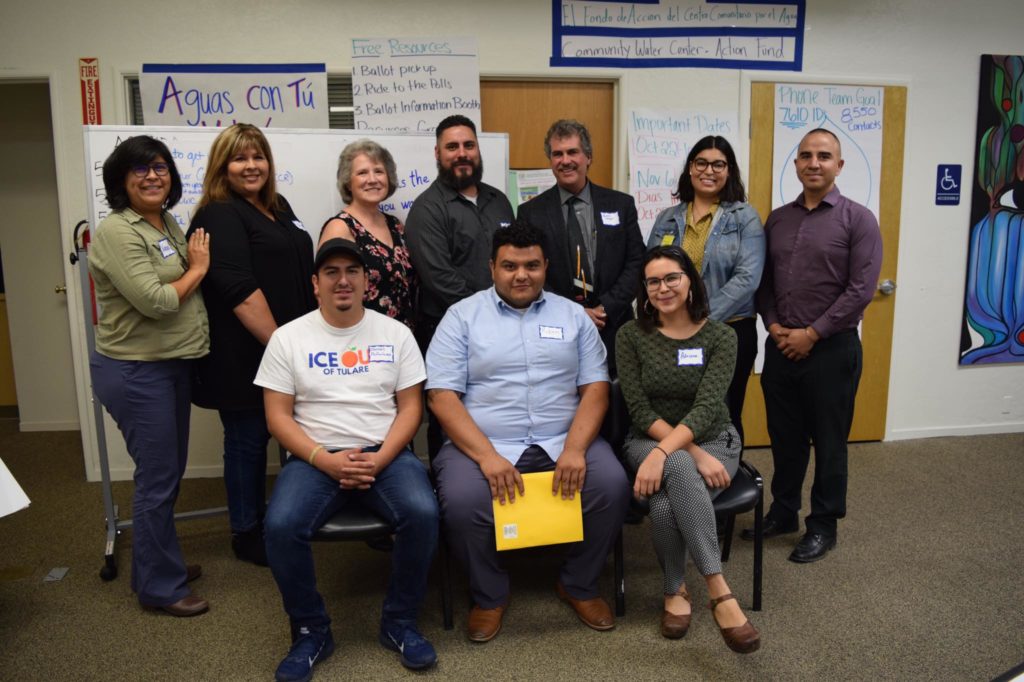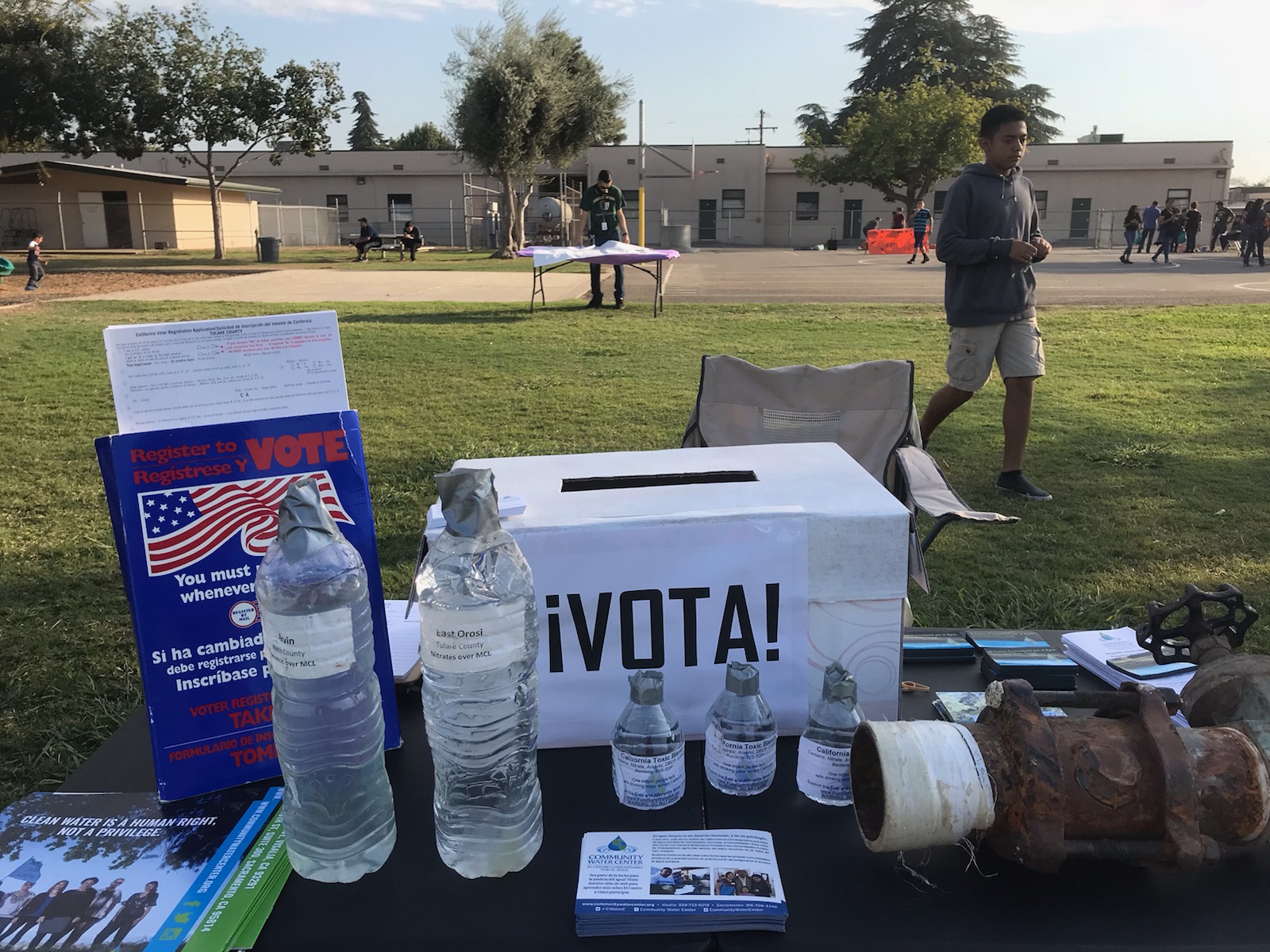Every election season, most of the attention goes to the top of the ballot. Races to decide who serves on water boards – often opaquely named community services districts or public utility districts – get little notice.
For the most part, water boards operate with an engineering mindset. This culture attracts board members who frequently have backgrounds in water agencies, business, or large-scale agriculture. This approach is very effective in delivering safe water to most US residents. But there are unintended consequences to this uniformity.
Predominantly led by white men, many of these public institutions have also failed to reflect the people they are supposed to serve. Community members’ knowledge and aspirations are often discounted or minimized by those in power. Even as populations and their priorities evolve and change, water boards can be unresponsive to new goals and approaches.
Still, these boards remain powerful. They decide whether and how residents get clean, safe, and affordable water. They make decisions on how to spend public funds on everything from river health and infrastructure upgrades to climate action in the face of worsening floods, droughts, and wildfires. Because we all need water to live, their choices deeply affect each constituent.

Uncontested Races Offer Opening for Change
Despite their crucial responsibilities, many board seats, particularly for smaller districts, go uncontested for years. Last November, for example, a water district near Sacramento, CA, held its first election in 43 years. This year, the Desert Sun interviewed every water district candidate running in the Coachella and Imperial valleys. Out of nine races, four seats automatically went to the incumbents because no one else qualified to run.
While this isn’t the democracy we want or need, the proliferation of uncontested water board elections also offers an opening for new leadership.
With some support, community members, especially those who have been at the forefront of water justice organizing and advocacy, are well positioned to run energized campaigns and win.
Community and justice groups, such as Community Water Center, Leadership Counsel for Justice and Accountability, Nature for All, and Self-Help Enterprises, are leading the charge to make local water leadership representative of and accountable to residents.
To do this, they are helping a new generation build their power and technical skills for values-based governance that listens and responds to the people who are most directly affected by water challenges. As a result of these and other groups’ work, rising leaders from Coachella to Tulare are running for seats on water boards. They are creating a nascent wave of base-connected elected officials from communities of color and communities struggling to make ends meet.
Water-Focused Action Funds Step Up
After finding that 87% of local water boards in the southern San Joaquin Valley had not held a single election between 2014 and 2018, Community Water Center launched the Community Water Leaders Network to help grow the pool of community leaders for local, regional, and state positions.
Community Water Center explains that “local elected seats are also the starting point for higher office and building a pipeline of community-focused progressive leadership. From our past experience, these leaders need support and access to good information to be successful in their roles as water decision-makers. [The Community Water Leaders Network] aims to provide access to relevant and timely information on drinking water issues, technical support on water governance issues, and access to a peer network of values-aligned elected officials dedicated to the human right to water.”
The Community Water Center Action Fund also endorsed candidates in 2018 and 2020 elections. In 2018, the 501(c)4 organization endorsed Linda Guttiérrez to serve on the Yettem/Seville community services district, which is now helping advance a community-driven project to rebuild Seville residents’ water system and undo decades of neglect that denied families their basic right to water. Guttiérrez says one of the reasons she decided to run was that Seville residents live in an area that helps grow food for most of the country but don’t have water for their own hygiene and cooking.

Community Water Center Action Fund staff and 2018 endorsed candidates, Community Water Center Action Fund.
This year, Community Water Center Action Fund endorsed Jose Sigala for Tulare City Council, District 1; Veronica Vasquez and Salvador Solorio-Ruiz for Delano City Council; and Tim Prado for Lamont Public Utility District. All four endorsed candidates were successful in their elections to local office. The action fund also launched its first civic engagement program that focused on talking to Latino, low propensity voters in Tulare, Delano, and Lamont.
Other groups are also supporting new water board leadership. This fall, for instance, the Los Angeles League of Conservation Voters endorsed former Pomona Councilmember Danielle Soto for a seat on the Three Valleys Municipal Water District, highlighting her expertise in working with community and environmental justice leaders. Over in Fresno, the Valley Voters PAC endorsed Tyler Mackey for the local water district. Soto and Mackey both won their elections on November 3.
Ensuring clean, reliable water for people and nature comes through the never-ending work on a social contract that enables everyone to live safely and with dignity. Community power on water boards is a part of the puzzle to get there.
Thirsty for Democracy Series
To learn more about how we’re thinking about and supporting systemic change in water decision-making, check out our opening post in this series, as well as a new post on making water and land decisions together.
